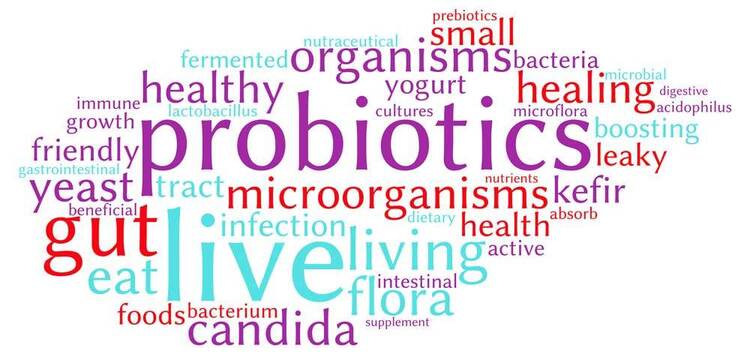Folate, a vital B vitamin, is essential for optimal health and well-being. Found naturally in foods as folate and synthetically as folic acid, this nutrient plays a crucial role in various bodily functions. From aiding in red blood cell formation and DNA synthesis to supporting cell growth and development, folate is indispensable. Its significance is particularly pronounced during pregnancy, where it helps prevent neural tube defects.
While abundant in leafy greens, fruits, legumes, and nuts, folic acid fortification in grains enhances its availability. Although most individuals meet their folate requirements through a balanced diet, supplements might be necessary for specific groups, including pregnant women or those with malabsorption issues.
A Note on Supplements
While folate is crucial for optimal health and can be obtained through a balanced diet, supplements may be considered in certain cases. It’s essential to remember that the Food and Drug Administration (FDA) does not regulate supplements with the same rigor as prescription drugs. Consequently, supplement quality and content can vary. To ensure safety and efficacy, always opt for third-party tested products and consult a healthcare professional, registered dietitian, or pharmacist for personalized guidance.
The Crucial Role of Folate
Folate, a B vitamin essential for human health, plays a pivotal role in several key bodily functions.
DNA Synthesis and Cell Growth
Central to the creation and repair of DNA, folate is instrumental in cell growth and replication. Its involvement in converting deoxyuridylate to thymidylate – a crucial step in DNA formation – underscores its importance for overall cellular health.
Red Blood Cell Production
Folate is a vital component in the production of red blood cells, the oxygen-carrying cells in our blood. Its deficiency can lead to megaloblastic anemia, a condition characterized by abnormally large, immature red blood cells.
Amino Acid Metabolism
Folate plays a crucial role in the conversion of homocysteine to methionine, a vital amino acid. This metabolic pathway is essential for overall health and well-being.
Folate vs. Folic Acid: Understanding the Difference
Folate and folic acid are often used interchangeably, but they represent distinct forms of vitamin B9. While both are crucial for human health, there are key differences in their sources, bioavailability, and stability.
Folate refers to the naturally occurring form of vitamin B9 found in a variety of foods such as leafy green vegetables, citrus fruits, legumes, and nuts. However, folate is sensitive to heat, light, and oxygen, leading to potential loss during food processing and cooking.
Folic acid is the synthetic form of folate commonly added to fortified foods like bread, cereals, and pasta. It is more stable than natural folate and is readily absorbed by the body. While folic acid fortification has significantly reduced neural tube defects, excessive intake of folic acid supplements has been linked to potential health risks.
It’s essential to obtain folate from a diverse diet, including folate-rich foods. However, supplementation might be necessary for certain individuals, such as pregnant women or those with specific dietary restrictions. Always consult a healthcare professional for personalized advice on folate intake.
Folate Deficiency: Recognizing the Signs
Folate deficiency occurs when the body doesn’t receive enough folate from dietary sources or supplements. This can lead to a range of health issues, particularly affecting red blood cell production and overall cellular function.
Symptoms of Folate Deficiency:
While symptoms can vary, common indicators of folate deficiency include:
- Fatigue and weakness
- Shortness of breath
- Pale skin
- Sore tongue or mouth ulcers
- Digestive issues, such as diarrhea or constipation
- Neurological symptoms, including numbness or tingling in the extremities
Causes of Folate Deficiency:
Several factors can contribute to folate deficiency:
- Inadequate Dietary Intake: A diet lacking in folate-rich foods can lead to deficiency.
- Malabsorption Issues: Conditions like Crohn’s disease or celiac disease can impair the body’s ability to absorb folate from food.
- Alcoholism: Excessive alcohol consumption can interfere with folate metabolism.
- Medications: Certain medications can affect folate levels in the body.
- Pregnancy and Breastfeeding: Increased folate requirements during these periods can lead to deficiency if not adequately addressed.
Folate and the Prevention of Neural Tube Defects
Folate, a crucial B vitamin, plays a pivotal role in preventing neural tube defects (NTDs), severe birth defects of the brain and spine. Research has shown a strong correlation between adequate folate intake before and during early pregnancy and a reduced risk of NTDs.
The fortification of grain products with folic acid in the late 1990s has significantly contributed to a decline in NTD rates in the United States. However, disparities in NTD rates persist among different racial and ethnic groups, highlighting the ongoing need for awareness and prevention efforts.
To prevent NTDs, the U.S. Preventive Services Task Force recommends that all women of childbearing age consume 400-800 micrograms of folic acid daily, starting at least one month before conception and continuing through the first trimester of pregnancy.
Folate and Homocysteine: A Complex Relationship
Elevated homocysteine levels in the blood have been linked to an increased risk of heart disease. As folate plays a crucial role in homocysteine metabolism, researchers have explored its potential to reduce this risk.
While studies have demonstrated that folic acid supplementation can effectively lower homocysteine levels, the direct impact on heart disease risk remains complex. While some research suggests a potential reduction in stroke risk, the evidence for a decreased risk of heart attack or overall cardiovascular mortality is less conclusive.
It’s important to note that homocysteine levels are influenced by various factors, including vitamin B12 and vitamin B6 levels. Therefore, a comprehensive approach addressing overall nutritional status is often recommended for optimal heart health.
Always consult with a healthcare professional for personalized advice on managing homocysteine levels and reducing heart disease risk.
Folate and Other Areas of Research
While folate is renowned for its role in preventing neural tube defects, ongoing research is exploring its potential benefits in other areas of health.
Autism Spectrum Disorder (ASD): Some studies have suggested a possible link between folic acid supplementation during pregnancy and a reduced risk of ASD. However, the evidence is inconclusive, and more research is needed to establish a definitive connection.
Cancer Prevention: The relationship between folate intake and cancer risk is complex. Some studies have explored potential associations, but the results are inconsistent. The U.S. Department of Health and Human Services National Toxicology Program has identified this as an area requiring further investigation.
Cognitive Function: Given the connection between folate and homocysteine levels, which are linked to cognitive decline, researchers have explored the potential cognitive benefits of folic acid supplementation. However, most studies have not found a significant association between folate intake and improved cognitive function.
It’s important to note that these areas of research are ongoing, and the current evidence is insufficient to draw definitive conclusions. Always consult with a healthcare professional for personalized advice on folate supplementation.
How Much Folate Do You Need?
The recommended dietary allowance (RDA) for folate varies based on age and gender. Generally, adults require 400 micrograms (mcg) of folic acid per day. However, specific groups, such as pregnant women, have higher requirements.
For women planning or capable of becoming pregnant, the recommended intake increases to 600-800 mcg per day to prevent neural tube defects. It’s crucial to start consuming this amount at least one month before conception.
Always consult with a healthcare provider to determine your specific folate needs based on your age, health status, and lifestyle factors.
Note: While fortified foods and supplements can contribute to your folate intake, a diverse diet rich in folate-containing foods remains essential for overall health.
Who Should Consider Folic Acid Supplementation?
While a balanced diet rich in folate-rich foods is ideal, certain individuals may benefit from folic acid supplementation. Here are some groups who should consult with a healthcare provider to determine if supplementation is necessary:
- Women of Childbearing Age: Due to the crucial role of folate in preventing neural tube defects, women planning or capable of pregnancy are strongly encouraged to consume adequate amounts of folic acid.
- Individuals with Malabsorption Issues: Conditions such as celiac disease, Crohn’s disease, or other digestive disorders can impair the body’s ability to absorb folate from food.
- People with Alcohol Use Disorder: Excessive alcohol consumption can interfere with folate metabolism, increasing the risk of deficiency.
- Individuals Taking Certain Medications: Some medications may interact with folate or affect its absorption, potentially leading to deficiency.
Rich Sources of Folate
Folate, a vital B vitamin, is naturally abundant in a variety of foods. Incorporating these folate-rich options into your diet is crucial for optimal health and well-being.
Leafy Green Vegetables
A cornerstone of a folate-rich diet, leafy green vegetables are packed with this essential nutrient. Spinach, kale, and collard greens are particularly rich sources. These vegetables not only provide folate but also offer a wealth of other essential vitamins, minerals, and antioxidants.
Legumes
Lentils, chickpeas, and kidney beans are excellent plant-based sources of folate. These legumes also provide fiber, protein, and other vital nutrients, making them a healthy addition to any diet.
Citrus Fruits
Oranges, grapefruits, and lemons are not only delicious but also contribute to folate intake. These fruits are also rich in vitamin C, which enhances iron absorption.
Nuts and Seeds
Almonds, sunflower seeds, and chia seeds are nutritious options that offer a good amount of folate. Incorporating these into your diet can provide a convenient way to boost your folate intake.
Fortified Grains
To increase folate consumption within the population, many countries mandate the fortification of grain products with folic acid. Breads, cereals, pasta, and rice are commonly fortified, making them accessible sources of this essential nutrient.
By incorporating a diverse range of folate-rich foods into your daily meals, you can significantly enhance your folate status and support overall health.
Folate Supplementation: A Closer Look
While a diet rich in folate-rich foods is ideal, supplementation may be necessary for certain individuals to meet their daily requirements. Folic acid, the synthetic form of folate, is widely available in various supplement forms.
Types of Folate Supplements
- Multivitamins: Many multivitamin formulations include folic acid as part of their comprehensive nutrient profile.
- Prenatal Vitamins: Specifically designed for women of childbearing age, these vitamins contain higher doses of folic acid to support fetal development.
- Standalone Folic Acid Supplements: These provide concentrated doses of folic acid and are available in various strengths.
- 5-MTHF (L-methylfolate): A newer form of folate, 5-MTHF, bypasses the conversion process in the body and is more readily usable. It may be beneficial for individuals with certain genetic variations.
Dosage and Considerations
The recommended dosage of folic acid varies based on age, gender, and specific health conditions. For adults, the daily recommended intake is typically 400 micrograms (mcg). However, pregnant women require higher amounts, often around 600-800 mcg per day.
It’s essential to consult with a healthcare provider to determine the appropriate dosage and to discuss potential interactions with other medications or supplements. While folic acid is generally safe, excessive intake can mask a vitamin B12 deficiency, leading to neurological complications.
Precautions and Considerations for Folic Acid Supplementation
While folic acid is essential for overall health, it’s crucial to consume it responsibly. Excessive or improper use can lead to potential health implications.
- Masking Vitamin B12 Deficiency: High doses of folic acid can mask the symptoms of vitamin B12 deficiency, leading to neurological damage if left untreated.
- Cancer Risk: Some studies have suggested a potential link between high folic acid intake and certain types of cancer, although the evidence is inconclusive.
- Cognitive Function: While research is ongoing, excessive folic acid intake has been associated with lower cognitive function in children in some studies.
- Immune System Impact: There is limited evidence suggesting that high doses of folic acid might negatively affect immune function.
- Drug Interactions: Folic acid can interact with certain medications, such as anti-seizure drugs.
To avoid these potential risks, it’s essential to follow the recommended dosage and consult with a healthcare professional before starting any supplement regimen. Additionally, obtaining folate from a diverse range of food sources contributes to overall health and reduces the risk of imbalances associated with excessive supplementation.
Folic Acid and Medication Interactions
While folic acid is essential for overall health, it’s crucial to be aware of potential interactions with certain medications. Always consult with a healthcare provider before starting any new supplement, especially if you are taking prescription medications.
Medications that may interact with folic acid include:
- Methotrexate: Commonly used to treat cancer and autoimmune diseases, methotrexate can interact with folic acid, potentially reducing its effectiveness.
- Anti-seizure Medications: Drugs like phenytoin, carbamazepine, and valproic acid can decrease folic acid levels in the body.
- Sulfasalazine: Used to treat inflammatory bowel diseases, sulfasalazine can interfere with the absorption of folate.
A Quick Recap
Folate, a B vitamin crucial for optimal health, is vital for various bodily functions. It exists in two primary forms: naturally occurring folate found in foods and folic acid, the synthetic form added to fortified foods and supplements.
The Importance of Folate
- Red Blood Cell Formation: Folate is essential for producing healthy red blood cells, which carry oxygen throughout the body.
- DNA Synthesis: Involved in the creation and repair of DNA, folate supports cellular growth and replication.
- Neural Tube Development: During pregnancy, folate is crucial for preventing neural tube defects, severe birth abnormalities of the brain and spine.
- Homocysteine Metabolism: Helps convert homocysteine, an amino acid linked to heart disease, into methionine.
Rich Sources of Folate
To ensure adequate folate intake, incorporating a variety of folate-rich foods into your diet is essential. Prime sources include:
- Leafy green vegetables: Spinach, kale, and broccoli
- Legumes: Lentils, chickpeas, and kidney beans
- Citrus fruits: Oranges, lemons, and grapefruits
- Nuts and seeds: Almonds, sunflower seeds, and peanuts
- Fortified grains: Breads, cereals, pasta, and rice
Folate Supplementation
While a balanced diet provides ample folate for most individuals, certain groups may benefit from supplementation. Pregnant women, individuals with malabsorption issues, or those on medications that interfere with folate absorption should consider folic acid supplements.
Note: The bioavailability of folic acid from supplements is generally higher than that from food sources.
Precautions and Considerations
- Excessive Folate Intake: While essential, excessive folate intake can mask a vitamin B12 deficiency, leading to neurological complications.
- Drug Interactions: Folic acid may interact with certain medications, such as methotrexate, anti-seizure drugs, and sulfasalazine.
- Pregnancy: Pregnant women should consume adequate folate to prevent neural tube defects.
Always consult with a healthcare provider to determine your specific folate needs and to discuss any potential interactions with medications or supplements.
By understanding the importance of folate and incorporating it into your diet or supplement regimen, you can support optimal health and well-being.




